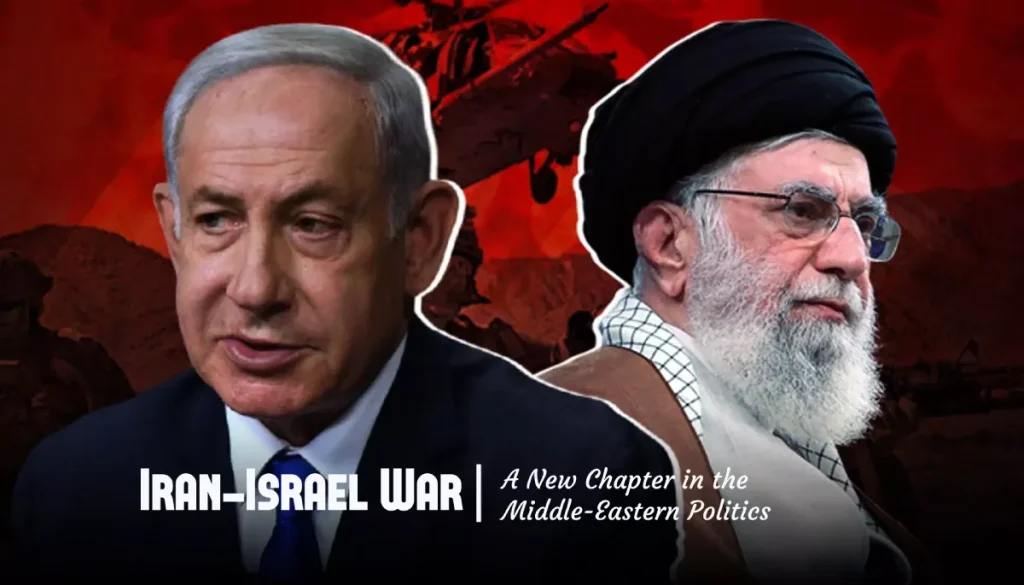
The Middle East, a region notorious for its political volatility, is on the cusp of a new era of conflict. The long-standing tensions between Iran and Israel have escalated to a point where war seems inevitable.
The Middle East has witnessed numerous conflicts over the years, but the escalating tensions between Iran and Israel have raised concerns about a potential war that could have far-reaching consequences. Recent events suggest that we may be approaching a new turning point in this conflict.
Here, we shed some light on the intricacies of the Iran-Israel conflict, exploring its historical roots, current tensions, and potential consequences for the region.
A Brief History of Iran-Israel Relations
The animosity between Iran and Israel can be traced back to the 1979 Iranian Revolution, which saw the overthrow of the Shah and the establishment of an Islamic republic. Israel, which had enjoyed diplomatic relations with Iran under the Shah, viewed the new government with suspicion. Iran, in turn, saw Israel as a threat to its regional ambitions and a symbol of Western imperialism.
Over the years, the relationship has deteriorated, with both countries engaging in a proxy war in Lebanon and Syria. Iran has backed Hezbollah and Hamas, militant groups opposed to Israel, while Israel has supported opposition groups in Iran and launched military strikes against Iranian targets in Syria.
Current Tensions
The current tensions between Iran and Israel can be attributed to several factors:
Nuclear Program: Iran’s nuclear program has long been a point of contention, with Israel viewing it as an existential threat. The 2015 Joint Comprehensive Plan of Action (JCPOA) provided temporary relief, but the US withdrawal in 2018 and Iran’s subsequent resumption of nuclear activities have reignited tensions.
- Regional Influence: Iran’s growing influence in Syria, Lebanon, and Yemen has alarmed Israel, which sees it as a threat to its regional dominance.
- Military Buildup: Both countries have engaged in a military buildup, with Iran developing its ballistic missile program and Israel acquiring advanced weaponry from the US.
The War Scenario
A war between Iran and Israel would have far-reaching consequences for the region. Here are a few possible scenarios:
- Aerial Bombardment: Israel could launch airstrikes against Iranian nuclear facilities, military installations, and strategic infrastructure. Iran could retaliate with missile strikes against Israeli cities and military bases.
- Ground Invasion: Israel could launch a ground invasion of Lebanon or Syria to target Iranian-backed militias. Iran could respond by mobilizing its Revolutionary Guard Corps and Hezbollah fighters.
- Proxy War: The conflict could devolve into a proxy war, with Iran backing militant groups in the region and Israel supporting opposition groups in Iran.
Consequences
A war between Iran and Israel would have devastating consequences for the region:
- Humanitarian Crisis: Civilians would bear the brunt of the conflict, with potential displacement, injury, and loss of life on a massive scale.
- Regional Instability: The conflict could draw in other regional actors, such as Saudi Arabia, Turkey, and the US, leading to a wider regional war.
- Global Economic Impact: The conflict could disrupt global oil supplies, leading to an economic crisis.
Geopolitical Chessboard
The Iran-Israel conflict is not just a bilateral issue; it is intricately linked to the broader geopolitical dynamics of the Middle East. The region is characterized by a complex web of alliances and rivalries involving various state and non-state actors, each pursuing its own interests and agendas. Iran’s support for groups like Hezbollah and its backing of the Assad regime in Syria have drawn it into conflict with Israel and its allies, including the United States and Saudi Arabia.
Moreover, the Iran-Israel rivalry intersects with other regional fault lines, such as the Sunni-Shia divide and the Arab-Israeli conflict. Iran’s predominantly Shia population and revolutionary ideology have led to its alignment with Shia groups and governments in the region, further exacerbating tensions with Sunni-majority states and Israel. Meanwhile, Israel’s close ties with Sunni Arab states, particularly those aligned with the Gulf Cooperation Council (GCC), have created an informal alliance aimed at containing Iran’s influence.
Iran-Israel War: A New Turning Point
- Rise in Hostilities
In recent years, Israel has carried out numerous airstrikes on Iranian targets in Syria, Lebanon, and Iran itself, citing the need to prevent Iran’s entrenchment in the region. Iran, on the other hand, has vowed to retaliate against Israel for these attacks and has supported various proxy groups in the region, such as Hezbollah and Hamas, to counter Israeli aggression.
- Escalation of Tensions
The situation took a dramatic turn in 2023 when Israel launched a series of airstrikes on Iranian nuclear facilities, leading to a significant escalation in tensions between the two nations. Iran responded by launching missile strikes on Israeli military targets, and the conflict began to spread beyond the region.
- Regional Implications
A full-scale war between Iran and Israel would have severe regional and global implications. The conflict would likely draw in other countries, such as the United States, Saudi Arabia, and Turkey, and could lead to a broader regional conflict. The humanitarian crisis would be catastrophic, with millions of people displaced and affected.
- International Intervention
The international community must intervene to prevent a catastrophic war. Diplomatic efforts, such as the Joint Comprehensive Plan of Action (JCPOA), have failed to yield lasting results, and new initiatives are needed to address the root causes of the conflict. The United Nations and other international organizations must work towards a peaceful resolution, including economic and political pressure on both sides to negotiate a ceasefire.
The Iran-Israel war is a ticking time bomb, waiting to unleash a new chapter of violence and instability in the Middle East. Diplomacy and dialogue are the only ways to prevent this catastrophe. The international community must work towards a comprehensive solution that addresses the concerns of both parties and ensures a peaceful resolution to this longstanding conflict.
Research References and Sources
- “A History of Iran-Israel Relations” by Trita Parsi (Journal of International Affairs, 2019)
- “The Iran-Israel Conflict: A War of Words or a Prelude to War?” by Sina Azodi (The Middle East Journal, 2020)
- “The Iranian Nuclear Program: A Threat to Israel?” by Avner Cohen (The Nonproliferation Review, 2018)
- “Iran’s Regional Influence: A Challenge to Israel’s Dominance?” by Zeev Maghen (The Journal of Middle Eastern Politics and Policy, 2020)
- “The Military Buildup in the Middle East: A Recipe for War?” by Michael Eisenstadt (The Washington Institute for Near East Policy, 2020)
Explore more captivating content and stay up-to-date with global happenings by visiting Freely blogging!
